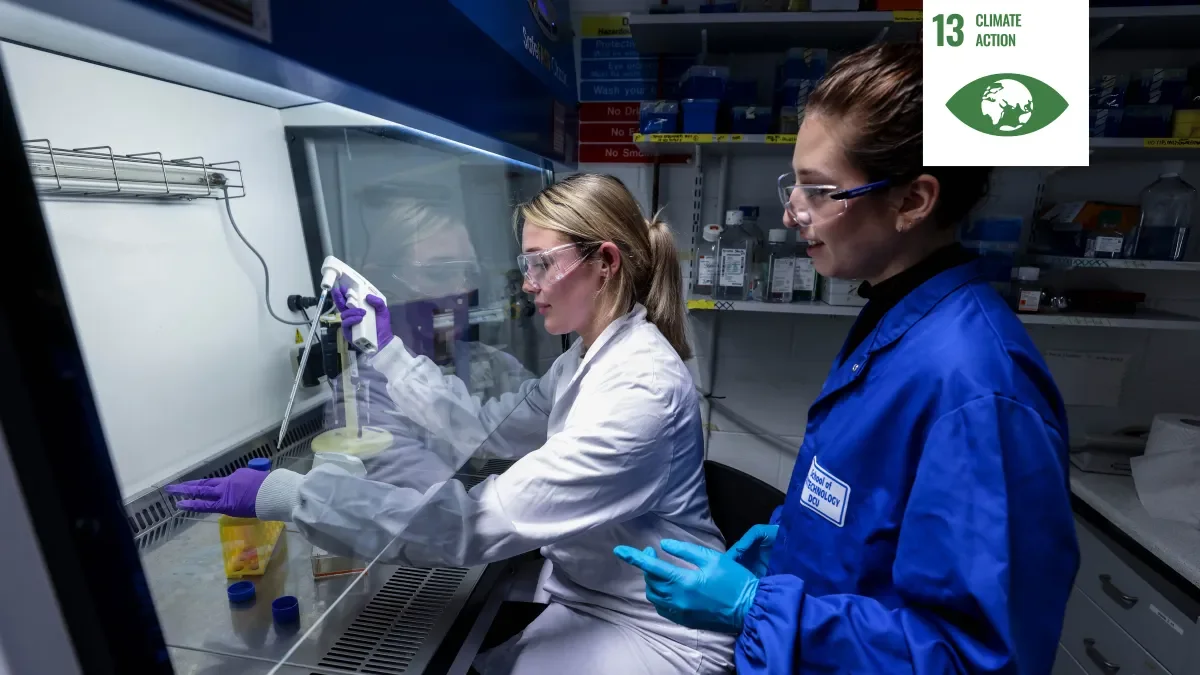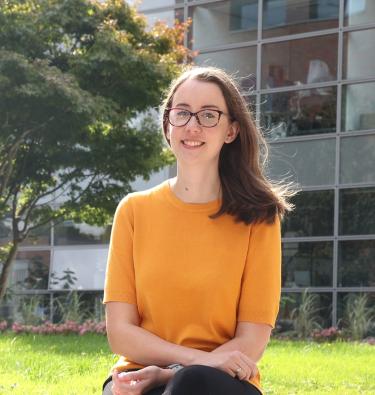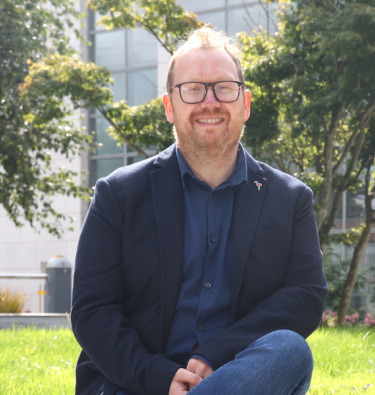
For all its faults, plastic is an incredibly useful material. It is cost-effective, easy to produce and versatile. Therefore, the planet’s plastic problem is no easy fix. Dublin City University is at the cutting edge of research solving this conundrum.
The vast majority of plastics currently made are manufactured from fossil fuels, and so their production contributes to the climate crisis. The consensus is clear that innovative, large scale change will be required in all sectors to combat this problem.
As put by the Intergovernmental Panel on Climate Change (IPCC) in March this year: “The choices and actions implemented in this decade will have impacts now and for thousands of years.”
The icon on this article reflects contribution to UN Sustainable Development Goal 13: Climate Action. The Sustainable Development Goals are 17 objectives designed by the United Nations to serve as a shared blueprint for peace and prosperity for people and the planet.
Bioplastics
Laboratories in particular go through a large amount of single use plastic. It’s cost effective, and avoids contamination. However, it is just not sustainable. Grain-4-Lab aims to produce a more sustainable plastic which satisfies this demand.
A compostable bioplastic, made from a more sustainable source, could be an answer to laboratories’ reliance on single-use plastic. However, most bioplastics require sugar cane, sugar beet or corn to start the process. Land has to be cleared to grow these crops. That land could be better served by growing food for humanity, or preserving the environment by remaining as forest.
Grain-4-Lab is developing an innovative bioplastic that could solve this problem. The lab is using waste from the brewing and distillery industries instead.
Ireland is famous for Beer and Whiskey production with over 100 breweries and distilleries nationwide. For every bottle of alcohol produced, up to six bottles of other by-products can be generated. At Grain-4-Lab we’ve found a new use for these waste-streams, which we feed to bacteria.
Circular bio-economy
These helpful bacteria we can get a chemical called lactic acid, which we can turn into a bioplastic called polylactic acid, or PLA. This plastic is biodegradable, and will break down in an industrial composter. This means Grain-4-Lab’s plastic is part of a circular bioeconomy. It uses waste to create plastic that won’t sit in landfill for years.
We are currently looking at using our plastics to replace laboratory single-use plastics. Things like petri dishes and plastic test tubes. A biodegradable plastic could help laboratories worldwide in making the transition to the sustainable future we need.
However, it would be useless to make these new plastics if they cannot function to the current standard. To that end we’ve done the work, rigorously testing our products proving that they meet all the requirements for use in labs.
Open source review
Our open-source review article was the first paper to ever comprehensively review the potential use of bioplastic materials in lab consumables.
There was a critical need to examine the reasons why plastics are so necessary in lab environments but also raise awareness in the community about the detrimental environmental impacts these plastics were having.
Prize-winning research
This paper highlights a key research area that was yet to be explored and the findings heavily influenced the direction of the Grain-4-Lab project. It was a key element in winning the SFI Future innovator Prize Plastics Challenge and the approximately €2m prize.
The world is in crisis, and urgent action needs to be taken to reduce CO2 emissions. Grain-4-Lab is pushing for societal change as well as scientific change: we are aiming to significantly reduce plastic use
Hopefully, our plastics could be one piece of the puzzle in moving us towards that greener future.
Read full paper and citation here - A Review of Polylactic Acid as a Replacement Material for Single-Use Laboratory Components

Adam Murphy is the Education and Public Engagement Officer for Grain-4-Lab.





